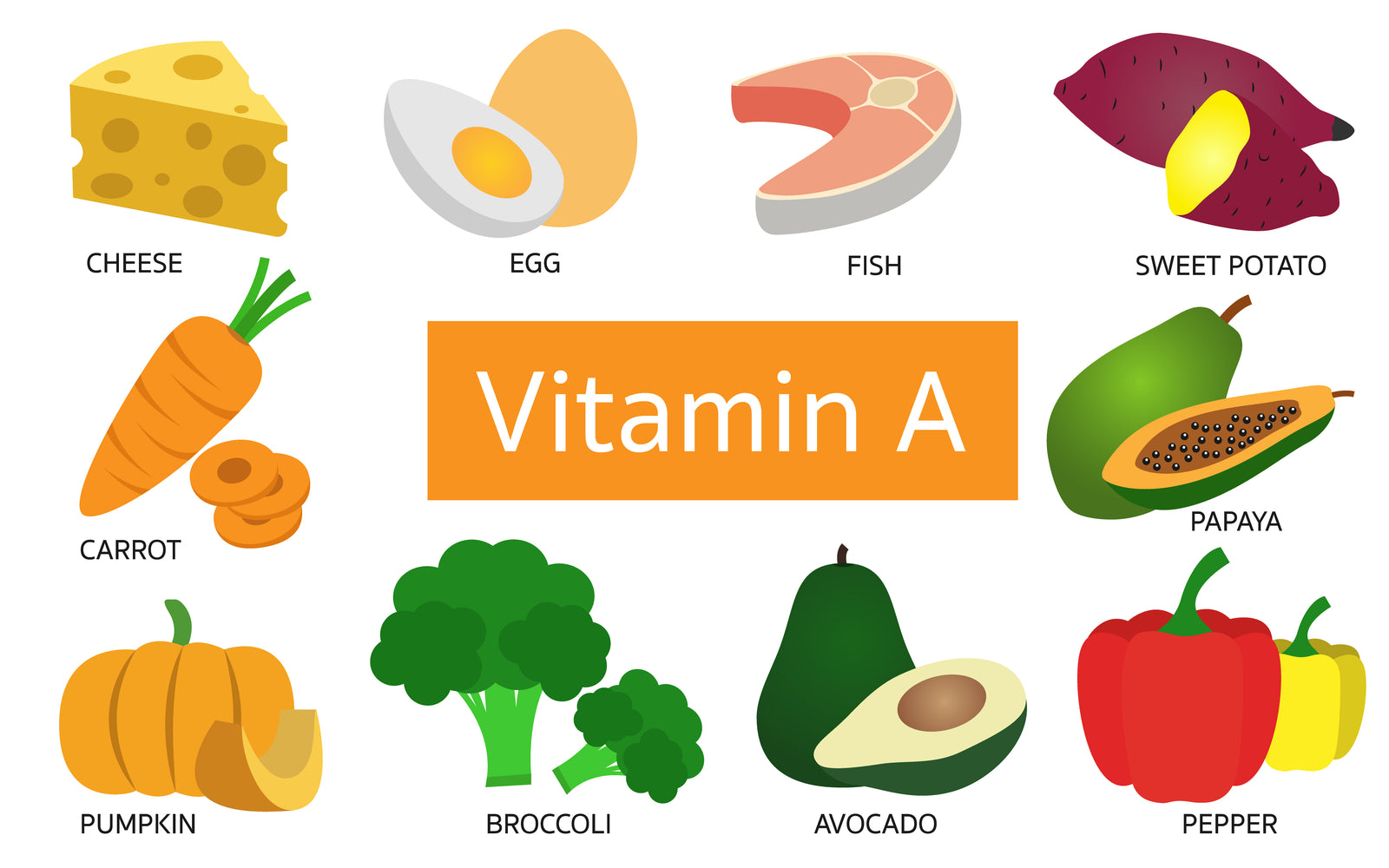Vitamin A was the first vitamin to be discovered hence giving it the name ‘A’! And whilst every vitamin delivers their own health benefits, vitamin A really is one of the all-stars.
Clinical Nutritionist Suzie Sawyer delves a little deeper into the amazing health benefits of Vitamin A!
An introduction
Vitamin A is also known as retinol. It was so-named because it’s crucial for the eyes; the retina at the back of the eye is key to good eyesight. In fact, it’s essential for great vision - night and day.
Vitamin A was also once known as the ‘anti-infective’ vitamin because it has wonderfully positive effects on the immune system and helps to fight viruses and infections. It’s also a powerful antioxidant which helps to hold back the years and protect us against some of the most prevalent degenerative diseases.
What does pro-vitamin a mean?
You may have heard the term pro-vitamin A. This is because vitamin A can actually be produced in the body from beta carotene, as needed. Serious vitamin A deficiency is actually very rare in the Western World since the body has its own production unit.
Foods high in beta-carotene are generally fruits and vegetables that are red, yellow and orange in colour. This partly explains the ‘old-wives tale’ of carrots helping you to see in the dark!
Where can I find it?
Vitamin A is available in animal foods, with fish liver oils being the richest source. All types of liver, egg yolks and dairy are excellent sources. There are many different fruits and vegetables that are pro-vitamin A, being carrots, kale, sweet potatoes, tomatoes and peppers.
Additionally, vitamin A is a fat soluble nutrient that can be stored in the liver so generally a ready-supply is available in the body, as required.
Suggestions for everyday eating
Since vitamin A is readily available directly in foods or in the form of beta carotene, there’s no end of choice for creating delicious vitamin A-packed meals. Think shepherd’s pie with sweet potato topping, liver and bacon with crispy kale side or chicken curry made with crème fraiche.
Even better, make your breakfast a real vitamin A treat with poached eggs and grilled tomatoes! Eggs are actually the best way to start the day for many reasons alongside the vitamin A content; they’ll get your blood sugar levels well balanced so your energy levels will be sustained throughout the day.
Is vitamin a good for the skin?
Yes indeed. The reason being that vitamin A plays a key role in stimulating cellular activity associated with skin repair and protection of mucous membranes. Vitamin A works at the base layer of the skin epidermis, healing and repairing.
A synthetic form of retinol, retinoic acid, has been produced, which is used to treat persistent and difficult skin conditions, particularly acne. However, because vitamin A is stored in the liver, care needs to be taken when using retinoic acid on a long-term basis because it may impede liver function.
What about pregnancy?
You may have heard the advice that liver shouldn’t be consumed in large quantities during pregnancy. This is because too much vitamin A can be harmful to the growing baby. However, there is no cause for alarm. Remember that vitamin A is absolutely essential for developing eyes.
The daily nutrient reference value (NRV) for vitamin A is 800 micrograms. This is for supplementation purposes. Taking a supplement at this level is actually recommended during pregnancy. It is perfectly safe (and indeed very wise) to eat plenty of colourful fruits and veg during pregnancy; remember the body only converts beta-carotene to vitamin A as needed by the body.
Am I getting enough?
We know that vitamin A deficiency is rare. However, people suffering from malabsorption issues or liver problems can sometimes show slight deficiency symptoms such as poor immunity and susceptibility to infections. Skin problems can also be a sign of deficiency and bumpy skin on the back of the arms can be a good indication that something’s up!
It’s worth also noting that people who have a high alcohol intake, who take cortisone medication for inflammatory problems, or have a high intake of iron may be low in vitamin A; iron competes with vitamin A for absorption in the body. However, both work happily together when eaten or taken in supplement form at normal levels.

